
Robin McLaurin Williams (July 21, 1951 – August 11, 2014) was an American actor and comedian. Known for his improvisational skills and the wide variety of characters he created on the spur of the moment and portrayed on film, in dramas and comedies alike, he is regarded as one of the greatest comedians of all time. He received numerous accolades including an Academy Award, two Primetime Emmy Awards, six Golden Globe Awards, two Screen Actors Guild Awards, and five Grammy Awards.
Williams began performing stand-up comedy in San Francisco and Los Angeles during the mid-1970s, and released several comedy albums including Reality ... What a Concept in 1980. He rose to fame playing the alien Mork in the ABC sitcom Mork & Mindy (1978–1982). He received his first leading film role in Popeye (1980). Williams went on to win the Academy Award for Best Supporting Actor for Good Will Hunting (1997). His other Oscar-nominated roles were for Good Morning, Vietnam (1987), Dead Poets Society (1989), and The Fisher King (1991).
Williams starred in the critically acclaimed dramas The World According to Garp (1982), Moscow on the Hudson (1984), Dead Poets Society (1989), Awakenings (1990), Patch Adams (1998), Insomnia (2002), One Hour Photo (2002), and World's Greatest Dad (2009). He also starred in family films such as Hook (1991), Mrs. Doubtfire (1993), Jumanji (1995), Jack (1996), Flubber (1997), RV (2006), and the Night at the Museum trilogy (2006–2014). He lent his voice to the animated films Aladdin (1992), Robots (2005), Happy Feet (2006), and its 2011 sequel.
Williams was found dead at his home in Paradise Cay, California, in August 2014, at the age of 63. At the time of his suicide, he had been diagnosed with Parkinson's disease. According to his widow, Williams had experienced depression, anxiety, and increasing paranoia. His autopsy found "diffuse Lewy body disease" and Lewy body dementia professionals said his symptoms were consistent with dementia with Lewy bodies.
Williams was born at St. Luke's Hospital in Chicago, Illinois, on July 21, 1951. His father, Robert Fitzgerald Williams (1906–1987), was a senior executive in Ford's Lincoln-Mercury Division. His mother, Laurie McLaurin (1922–2001), was a former model from Jackson, Mississippi, whose great-grandfather was Mississippi senator and governor Anselm J. McLaurin. Williams had two older half-brothers: a paternal half-brother, Robert (also known as Todd), and a maternal half-brother, McLaurin. While his mother was a practitioner of Christian Science, Williams was raised in his father's Episcopal faith. During a television interview on Inside the Actors Studio in 2001, Williams credited his mother as an important early influence on his humor, and he tried to make her laugh to gain attention.
Williams began performing stand-up comedy in the San Francisco Bay Area in 1976. He gave his first performance at the Holy City Zoo, a comedy club in San Francisco, where he worked his way up from tending bar. In the 1960s, San Francisco was a center for a rock music renaissance, hippies, drugs, and a sexual revolution, and in the late 1970s, Williams helped lead its "comedy renaissance", writes critic Gerald Nachman. Williams says he found out about "drugs and happiness" during that period, adding that he saw "the best brains of my time turned to mud".
Williams moved to Los Angeles and continued performing stand-up at clubs, including The Comedy Store. There, in 1977, he was seen by TV producer George Schlatter, who asked him to appear on a revival of his show Laugh-In. The show aired in late 1977 and was his debut TV appearance. That year, Williams also performed a show at the L.A. Improv for Home Box Office. While the Laugh-In revival failed, it led Williams into his television career; he continued performing stand-up at comedy clubs such as the Roxy to help keep his improvisational skills sharp. In England, Williams performed at The Fighting Cocks.
With his success on Mork & Mindy, Williams began to reach a wider audience with his stand-up comedy, starting in the late 1970s and throughout the 1980s, including three HBO comedy specials: Off The Wall (1978), An Evening with Robin Williams (1983), and A Night at the Met (1986). Williams won a Grammy Award for Best Comedy Album for the recording of his 1979 live show at the Copacabana in New York City, Reality ... What a Concept.
The first film role credited to Robin Williams is a small part in the 1977 low-budget comedy Can I Do It... 'Til I Need Glasses?. His first starring performance, however, is as the title character in Popeye (1980), in which Williams showcased the acting skills previously demonstrated in his television work; accordingly, the film's commercial disappointment was not blamed on his performance. He went on to star as the leading character in The World According to Garp (1982), which Williams considered "may have lacked a certain madness onscreen, but it had a great core".[44] He continued with other smaller roles in less successful films, such as The Survivors (1983) and Club Paradise (1986), though he said these roles did not help advance his film career.
His first major break came from his starring role in director Barry Levinson's Good Morning, Vietnam (1987), which earned Williams a nomination for the Academy Award for Best Actor. The film is set in 1965 during the Vietnam War, with Williams playing the role of Adrian Cronauer, a radio shock jock who keeps the troops entertained with comedy and sarcasm. Williams was allowed to play the role without a script, improvising most of his lines. Over the microphone, he created voice impressions of people, including Walter Cronkite, Gomer Pyle, Elvis Presley, Mr. Ed, and Richard Nixon. "We just let the cameras roll", said producer Mark Johnson, and Williams "managed to create something new for every single take".
Williams was found dead in his home in Paradise Cay, California, on August 11, 2014. The final autopsy report, released in November 2014, concluded that Williams' death was a suicide resulting from "asphyxia due to hanging". Neither alcohol nor illegal drugs were involved, and prescription drugs present in his body were at therapeutic levels. The report also noted that Williams had depression and anxiety. An examination of his brain tissue suggested Williams had "diffuse Lewy body dementia". Describing the disease as "the terrorist inside my husband's brain", his widow Susan Schneider Williams said that "however you look at it—the presence of Lewy bodies took his life", referring to his previous diagnosis of Parkinson's. She noted "how we as a culture don't have the vocabulary to discuss brain disease in the way we do about depression. Depression is a symptom of LBD and it's not about psychology – it's rooted in neurology. His brain was falling apart." Medical experts struggled to determine a cause, and eventually diagnosed him with Parkinson's disease.
If you want to read a lot more, go here: https://en.wikipedia.org/wiki/Robin_Williams
- 1/4 cup olive oil, divided
- 1 1/4 pounds Idaho potatoes, peeled and thinly sliced
- 1/2 yellow onion, thinly sliced
- Salt and pepper for sprinkling
- 1/2 teaspoon dried thyme
- 2 cups baby spinach leaves
- 3 cups shredded Cheddar cheese
- 1/4 cup diced ham
- Preheat oven to 425º. Lightly coat a 9-inch deep dish pie plate with olive oil.
- Arrange a single layer of potato slices over bottom of pie plate; lightly brush with olive oil. Place half the onions in a thin layer over potatoes, then season with salt, pepper, and 1/4 teaspoon thyme. Top with half the spinach leaves and 1 cup of cheese.
- Place a second layer of potatoes over cheese, pressing down gently. Lightly brush with olive oil. Continue with remaining onions, salt and pepper, thyme, spinach, and 1 cup cheese.
- Place a final layer of potatoes on top and gently press down. Lightly brush with oil and top with remaining cheese. Sprinkle with ham.
- Bake 35 to 40 minutes, or until potatoes are brown and cooked through. Let stand 5 minutes, then cut into wedges and serve.
And births this date include.....
1916 – Martha Raye, American actress (d. 1994)

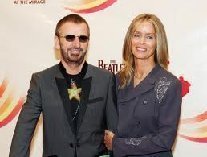

On August 27th, National Just Because Day offers up an opportunity to do stuff…just because. So feel free to celebrate this day any way you choose. Just because!
Every day we all do things that are expected or required of us. Sometimes we even do things because we have to do them; we don’t know why. Well, on this occasion, that does not apply. This day is a chance to do something without rhyme or reason.
- It could be that there is an outfit at the mall that you are admiring; buy it…just because.
- Maybe you want to use a vacation day just to go fishing; do it…just because.
- Perhaps you would like to pay the tab for the table next to you at your favorite restaurant; do it…just because.
- Possibly you want to sing really loud while you’re in your car, by yourself, with your windows rolled down; do it…just because.
- Surprise someone with flowers…just because!
- Make something up…just because!
- Or maybe, just maybe, do something just because Mom said so.
NATIONAL JUST BECAUSE DAY HISTORY
In the late 1950s, Joseph J. Goodwin of Los Gatos, California, created Just Because Day. It began as a family holiday and grew into an annual celebration across the United States.





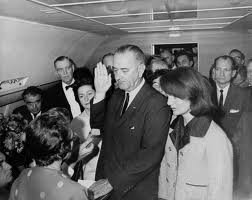
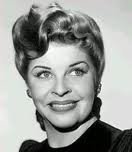
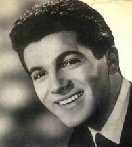
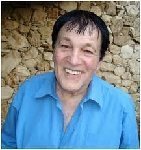
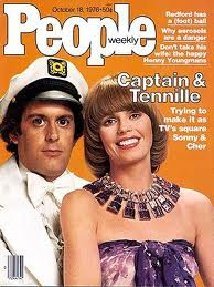
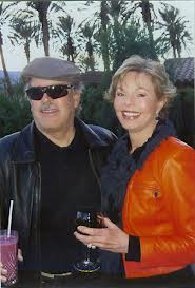
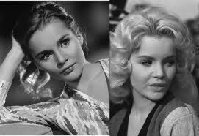
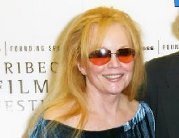


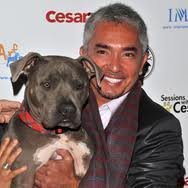

No comments:
Post a Comment